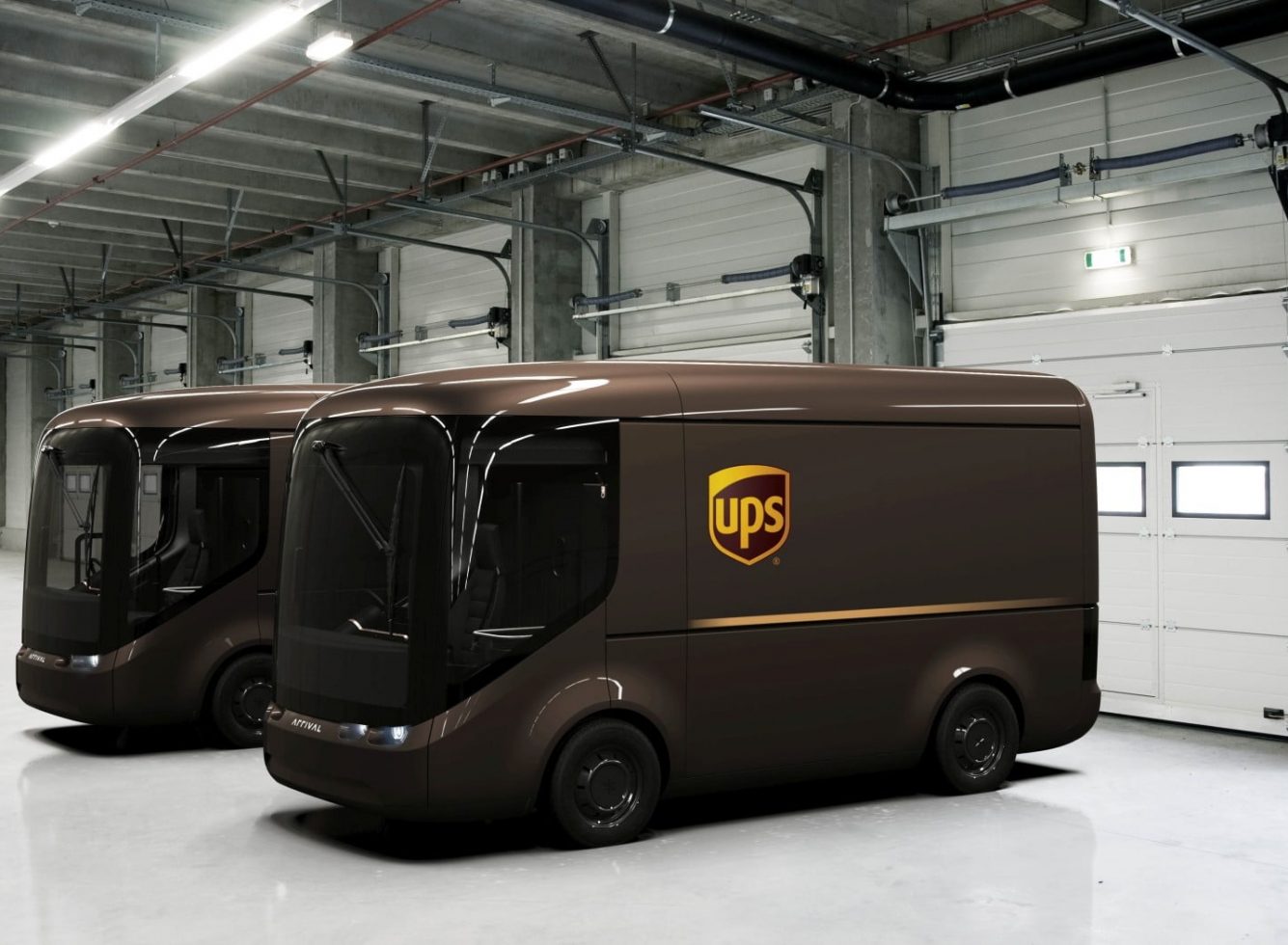Sustainable Delivery and Returns Expectations in the UK: What You Need to Know

Nearly half (43 percent) of UK shoppers state that they are “more likely” to shop with a rival retailer if they offer a greater range of sustainable delivery options, new research from click-and-collect firm Doddle has found. More and more e-commerce companies including marketplaces are offering green delivery options at checkout.
This article will explore the rise in demand of sustainable shipping and delivery options, the initiatives catering to those needs, and what marketplaces and other e-commerce businesses can learn about offering green options.
It is no secret that the COVID-19 pandemic has fuelled the massive growth of online shopping that we have been experiencing in recent years, with many people becoming more heavily dependent on e-commerce. Although retailers are no doubt benefitting from this large surge in demand, with customers equally enjoying growing standards of convenience, there is also growing pressure for businesses and consumers alike to be mindful of their carbon footprint. But how does this pressure actually impact consumers’ choices when it comes to deciding on a retailer or delivery method?
Well, a recent study by the global logistics provider UPS surveyed 10,000 consumers across Europe. This research found that “sustainability is the second most important driver for 75% of consumers when choosing a retailer.” Additionally, the top decision factor for 85% of consumers is the retailer’s choice of delivery partner. This data indicates that the two most important factors that shoppers will take into account when comparing your business with your competitors, are both your delivery partner, as well as sustainability.
To continue, consumers also want to see sustainable packaging – the demand for which is highest in Spain (64%) and the UK (63%). Furthermore, 54% of shoppers expect large brands to use sustainable packaging, with half (50%) of respondents expecting the same of smaller brands. Finally, when it comes to transit, a survey of 2,000 UK consumers found that there is also a majority desire (54%) to see large retailers working with “delivery providers who use electric or low-emission vehicles, and 53% want large…retailers to have carbon footprint offsetting for deliveries”.
Overall, when taking this data into account, it is clear that the majority of consumers – particularly those in the UK – are now expecting a lot more from sellers in terms of sustainability, and this trend is only going to continue growing. Not only do shoppers say that sustainability is important, they also want to see sustainable packaging, electric or low-emission vehicles and carbon footprint offsetting. The crucial takeaway here is that as a retailer, your choice of delivery partner and sustainability are the top 2 most important factors that shoppers are taking into account when they decide on who to shop with. Therefore, if you do not adapt to this growing trend, you will risk losing market share to your competition.
With the opportunity and need for greener delivery options clear, let’s take a look at some of the sustainable initiatives currently taking place in order to see how your business can be more competitive. One example of such an initiative is being rolled out by none other than Amazon themselves and is named ‘Shipment Zero’. So, what is Shipment Zero and how are Amazon going to evolve in order to meet this goal that they have outlined?
Shipment Zero is Amazon’s goal to deliver 50% of Amazon shipments with net-zero carbon by 2030. Net-zero carbon (also referred to as carbon neutral) means that there is a state of balance between greenhouse gases being put into the atmosphere and those being taken out. Achieving this will mean that all of Amazon’s fulfillment operations – from the fulfillment centre where an item is picked, to the materials used to package the item and the most of transportation will all be undertaken with net-zero carbon.
The first step towards realising this goal starts within the fulfillment centres where Amazon stock items, process orders and prepare shipments for delivery. Shipment Zero orders will pass through facilities that are powered by 100% clean energy from wind and solar projects dedicated to providing electricity for Amazon. Since June 2021, over 90 of Amazon’s fulfillment centres are powered by rooftop solar installations, which can generate as much as 80% of a single facility’s annual energy requirements. Additionally, Amazon is working to optimize their energy use from building operations by using innovative robotics and conveyance systems – minimizing the energy needed to transport shipments throughout the facilities.
The second part of the Shipment Zero initiative is to reduce the carbon footprint in terms of packaging. Shipment Zero orders will ship in carbon neutral packaging or without added Amazon packaging. Many products already qualify for this type of delivery due to Amazon’s FFP programs (Frustration-Free Packaging), which incentivize manufacturers to use more sustainable packaging. Amazon is also developing methods of delivery that are packaging-free. In India, for example, many Amazon orders are shipped in their original packaging and are then transported in reusable protective containers.
Finally, once a package reaches delivery – the final stage of the cycle – Amazon is also putting in place measures to ensure that this is done in a greener manner. All Shipment Zero orders will be delivered either in an electric delivery vehicle or by an Amazon delivery associate on a bicycle or foot. In 2020, for example, Amazon “delivered more than 20 million packages using electric vehicles to customers across North America and Europe.” Similarly to the methods of moving packages within fulfillment centres more efficiently, Amazon are also leveraging innovative technology to maximise efficiency on the road to reduce delivery distances.
Taking a different approach is one of Mr Porter’s latest projects, which proves that there are so many different ways to improve the sustainability of your business – it’s not solely all about electric vehicles. In June, the luxury online retailer introduced its Small World shop, a group of 33 global brands dedicated to their craftsmanship and use of recycled and low-impact materials. This assortment of products features a wide range of items from menswear, shoes and accessories through to grooming essentials, homewares and watches.
This initiative was launched as part of Mr Porter’s Craftsmanship Code – the brand’s approach to ensuring quality, character and purpose – standards which cover a unique range of practices. A lot of the focus of this code is based around practices which support sustainability, such as items being built to last and designed to be durable and hard-wearing, with products being repaired, reused or taken back for resale rather than disposed of. Additionally, for those products which are not meant to last, the Craftsmanship Code supports products that are designed to be easily and safely recycled or composted.
Furthermore, Mr Porter acknowledges that the majority of the environmental impact of a product is typically embedded in the materials from which it is made. Therefore, the Craftsmanship Code pushes for products to abide by this principle and use sustainable materials that have been grown and produced with a significantly reduced environmental footprint.
To summarise, we have taken a look into sustainability and what customers believe about being green, discovering how their shopping decisions are impacted by your choice of delivery partner as well as your commitment to eco-friendly practices. This has outlined both the need and opportunity for retailers to evolve into this space or risk losing market share to their competitors. We have then taken a look at some of the initiatives that are already being done – from large ecommerce companies like Amazon using electric vehicles and committing to running their facilities on green energy, to the more niche approach by Mr Porter to have a ‘code’ of sourcing locally and supporting high standards for materials. This demonstrates that sustainability can be built into the product lifecycle from start to finish, with a variety of opportunities to be more green presenting themselves at every turn.
As we have discovered, sustainable practices are the way forward – there is no doubt that involvement will only continue to grow and this is equally important for both large and smaller brands. In addition, sustainable expectations are clearly rising in demand for shoppers in the UK. At Arcade, we can help you sell onto UK marketplaces and we bring a deeper understanding of UK consumers and what they expect from retailers and brands using our wealth of understanding of the UK market. Get in touch with Arcade to talk about how we can help power your marketplace strategy and help you be part of the digital revolution.


